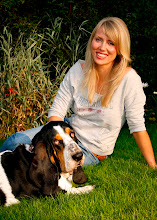
With the recent snow flurries and cold weather we've been experiencing, not only is it important that you wrap up warm and take precautions when travelling around in such weather, but it's also important to take safety measures to ensure your pets stay safe. Below are some top safety tips for pets during the cold weather.
Coats - just because your dog has a fur coat, doesn't mean he won't feel the cold. Small dogs or dogs with little to no hair should have sweaters or jackets for protection against the cold. If your dog doesn't like wearing clothing, then better to keep them out of the cold and ensure food and water is provided inside the home to prevent from freezing.
Cold - pets shouldn't be left outside or walked for long periods of time. Even half an hour in frigid temperatures can cause problems. Never leave your pet outside for more than ten minutes when temperatures dip below freezing. Your pet's ears, feet and tail are highly susceptible to frostbite, so limit his time outdoors.
Ice and feet - when walking your dog near ice or frozen puddles/ponds/canals/lakes, keep your dog close to you and on the lead. This ensures your dog cannot run across the ice, avoids his feet getting accidentally cut on the ice and helps prevent falls on the ice which may lead to injury for you and your dog. Always wash your dog's paw's after a winter walk to remove any salt.
Shaking - if your pet is out in the cold and begins shaking or shivering, get him back to warm shelter as soon as possible. Signs of hypothermia include; shaking/violent shivering, slow and shallow respiration, a slower heart rate, gums may appear pale or blue. The pet may also appear listless. Call your vet immediately.
Eating snow/ground matter - avoid letting your pet eat snow or anything else on the ground. Dangerous objects or chemicals may be hidden in the snow or ice. Eating snow can also cause stomach upsets and even hypothermia. Keep water at room temperature. Pet's, especially dogs, become easily dehydrated in winter, so make sure he has easy access to fresh water.
Antifreeze - this is highly toxic! Antifreeze can get into puddles on the pavement and roads and taste sweet to pets, but even the smallest amount is deadly to your pet. Supervise your pet while outside (even in the garden) and if you suspect your dog has had any exposure to antifreeze, call your vet immediately.
Fire - if you use an indoor or outdoor fireplace, ensure you keep a safety guard around it in order to protect your pet from the flames and soot. Never leave a fire unattended.
Shelter/bedding - always ensure your pet has adequate shelter where it will be warm and dry. His bed shouldn't be in a drafty area and bedding should be kept dry. Provide extra blankets when temperatures dip below freezing.
Grooming - snow can get easily caught up in the fur of your pet. So, regular grooming will help avoid matter being caught in their coat and a well groomed coat means a better insulating coat for your dog or cat.
In the car - never leave your pet alone in a vehicle. If the engine is off, he may die from hypothermia. If the engine is left running, he may be overcome with carbon monoxide fumes. Better to leave your dog at home in the warm.
Follow the tips to keep your pet healthy and safe this winter.

